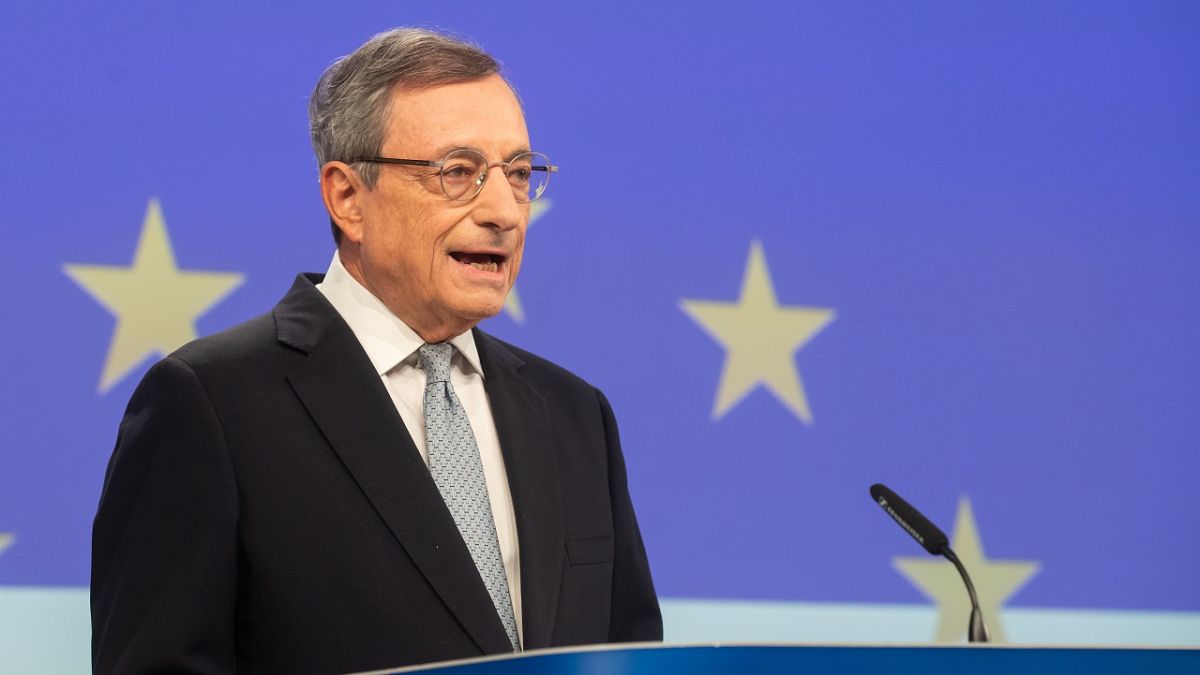The EU rules on AI should be paused while potential “drawbacks” are assessed, former Italian Prime Minister Mario Draghi said on Tuesday during a conference considering the European Commission’s progress in implementing the recommendations set out in Draghi’s landmark report from 2024.
The AI Act which entered into force in August last year, but will fully apply in 2027, is “a source of uncertainty”, the former Italian premier said.
The rules aim to regulate AI systems according to the risk they pose to society, ranging from minimal enforcement to more compliance for high-risk systems and prohibitions.
“The first rules—which included the ban on ‘unacceptable-risk’ systems—landed without major complications. Codes of practice signed by most major developers, together with the Commission’s August guidelines, have clarified responsibilities,” Draghi said.
“But the next stage—covering high-risk AI systems in areas like critical infrastructure and health—must be proportionate and support innovation and development. In my view, implementation of this stage should be paused until we better understand the drawbacks,” he added.
The intervention follows industry calls for delays earlier this year.
CEOs from more than 40 European companies including ASML, Philips, Siemens and Mistral, asked in July for a “two-year clock-stop” on the AI Act. In a letter to Commission President Ursula von der Leyen, they said this would allow “both for reasonable implementation by companies, and for further simplification of the new rules.”
The latest provisions on general purpose AI (GPAI), such as ChatGPT and Gemini, raised questions because Commission guidance aimed at helping providers was not ready in time. Euronews reported that several companies including Google have been asking for a grace period to be able to comply with the voluntary code of practice on GPAI.
It remains unclear in most of EU member states which authority will be nominated to oversee businesses’ compliance with the rules. The Commission hasn’t yet published a list of watchdogs in charge of enforcement.
Digital omnibus
Meanwhile the Commission’s tech chief Henna Virkkunen announced that the EU executive will present a so-called digital omnibus package in December, which will review all existing tech legislation and could ease the burden on companies by cutting for example reporting or transparency obligations. This would cover the bloc’s AI rules too.
A group of more than 50 organisations – including Access Now, Centre for Democracy and Technology Europe (CDT) and the European Consumer Organisation (BEUC) warned in July against re-opening or delaying the AI Act, claiming it would undermine key accountability mechanisms.
“The EU ‘simplification’ agenda should not be used to drive deregulation, especially in the absence of credible evidence that this would be necessary or effective,” the letter said, adding that EU rules are based on fundamental values and principles, “efforts to simplify should build on hard-won legal protections, not dismantle them.”
The AI Act has also come under pressure from the US administration in recent weeks. US President Donald Trump threatened to impose “substantial additional tariffs” on countries that implement legislation targeting American tech companies, “unless these discriminatory actions are removed”.
The Commission said in response that “It is the sovereign right of the EU and its member states to regulate economic activities on our territory, which are consistent with our democratic values.”
Read the full article here


